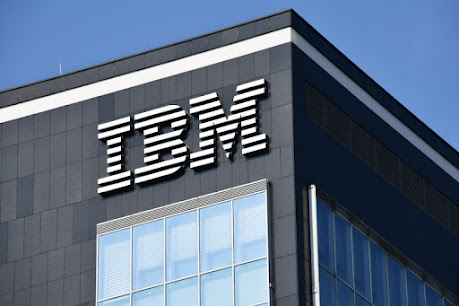Introduction:
In a recent announcement, IBM CEO Arvind Krishna revealed the company's plans to replace approximately 8,000 jobs with artificial intelligence (AI). This move signifies the increasing reliance on automation and AI across various sectors, with the potential to reshape the workforce. Alongside IBM, other tech giants like Meta Platforms Inc., Amazon.com Inc., Twitter Inc., and Microsoft Corp. have also implemented layoffs, highlighting the rapid transformation taking place due to AI. This article examines the implications of this shift and explores the potential impact on the future of jobs.
The Impact of AI on Back-Office Functions:
IBM's CEO specifically mentioned that back-office functions, starting with human resources (HR), will be the first areas to undergo significant changes. Over the next few years, a gradual transition will occur, with machines potentially assuming up to 30% of non-customer-facing roles. This implies that roles in finance, accounting, HR, and other similar areas could face competition from robots and algorithms.
The Trend Towards Automation and Cost-Cutting Measures:
IBM's decision to replace jobs with AI aligns with a larger trend in the tech industry. Earlier this year, the company announced the elimination of 3,900 jobs, reflecting the increasing emphasis on automation and cost-cutting measures. Similar patterns have been observed across other tech giants, indicating a widespread adoption of AI and its impact on the workforce.
The Warning Signs and Policymaker Response:
Experts have long warned about the potential for AI to replace human workers, and this recent development further emphasizes these concerns. Policymakers are not oblivious to the challenges posed by AI. In December, the White House released a report acknowledging the inevitability of job displacement due to AI. However, IBM's CEO remains optimistic about the prospects of AI in the workplace, highlighting its ability to streamline labor-intensive tasks in areas such as finance, accounting, and HR. By 2030, AI is projected to contribute a staggering $16 trillion to the global economy.
The Scope of Automation and Its Impact:
A report by Goldman Sachs economists highlights the magnitude of the impact of AI on the workforce. It suggests that up to 300 million full-time jobs worldwide could be affected by the latest wave of AI technology, accounting for approximately 18% of all work globally. Advanced economies are expected to experience the most significant impact.
The Future Outlook:
The rise of AI represents a significant shift in how companies operate in the digital age. The integration of AI into everyday life is becoming increasingly prevalent. Startups like AvaWatz are utilizing advanced technology to deploy teams of AI-driven autonomous robots, transforming operations in various sectors. While programs like ChatGPT are enhancing team efficiency, certain job roles might experience slower growth due to this automation.
Conclusion:
The introduction of AI into the workforce is reshaping traditional job roles and transforming industries across the globe. IBM's decision to replace jobs with AI is emblematic of this trend, as tech giants embrace automation and cost-cutting measures. Policymakers are aware of the challenges posed by AI, and its impact on the global economy is projected to be substantial. The future of jobs will require adaptation and upskilling to thrive in a workforce increasingly intertwined with AI and automation.






Social Plugin